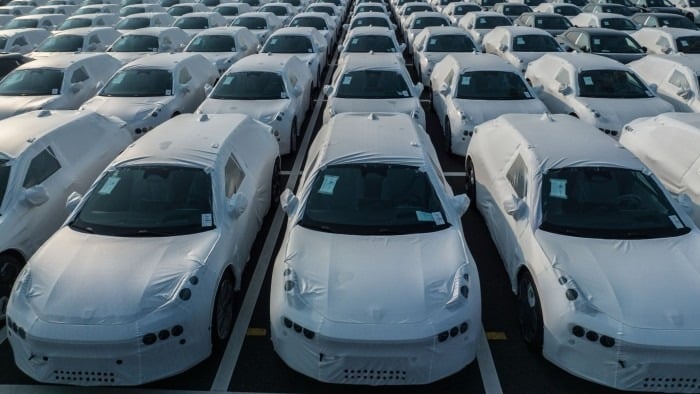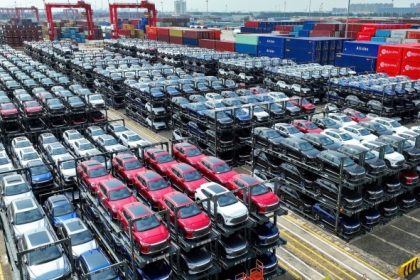Resorting to protectionist measures is not in Brussels’ long-term interests
The International Motor Show, Europe’s largest automobile exhibition, is usually dominated by the continent’s top combustion engine brands, including BMW, Mercedes and Porsche. At the most recent expo in Munich last week, the spotlight was firmly on electric vehicles — a sector in which the EU’s auto industry has fallen woefully behind China.
The bloc is determined not to let car production go the way of its solar industry, which was overwhelmed by fierce competition from cheap Chinese imports a decade ago. On Wednesday, European Commission President Ursula von der Leyen announced an anti-subsidy probe into China’s electric vehicle industry, marking an escalation of tensions with Beijing as the bloc aims to reduce its dependence on China.
It should come as no surprise that the Chinese state has heavily subsidised its electric vehicle industry. From raw materials through to production, it has been cornering the supply chain for decades. It has acted in an anti-competitive manner and it is fair for the EU to investigate Chinese practices. But, ultimately, retaliatory measures would not be in its interests.
First, if it is serious about its goal to lower carbon emissions as quickly as possible, it should not matter where EVs are being produced — particularly as the EU intends to ban the sale of new combustion engine cars from 2035. There is also no clear national security risk from China’s presence in the European EV market and it already faces a 10 per cent tariff. Indeed, Brussels imposed tariffs in 2013 on Chinese solar panels but lifted them five years later because it could not reach its renewable energy targets without them.
Further tariffs on Chinese imports would also coddle European carmakers, which have dawdled on EVs for years. German manufacturers have long been resistant, with trade unions and car lobbies reluctant to shift away from internal combustion engines — where European industry has prowess, and which are also more labour-intensive.
EU tariffs on Chinese EVs would also sour relations and risk triggering retaliation from Beijing, which could be harmful to European interests; on Thursday, China’s commerce ministry attacked the EU’s probe as a “naked protectionist act”. Cheap imports from China during a cost of living crisis benefit the EU, particularly while European production is less efficient. German producers rely heavily on selling into the Chinese market, and European manufacturers are already integrating batteries made by Chinese companies in Europe or China into their supply chains. Efforts to counter car imports from Japan in the 1980s ultimately led to Japanese firms shifting production to Europe anyhow.
The probe itself may merely be von der Leyen’s response to political pressure. Nonetheless, Europe still needs to accelerate the development of EV models and knowhow, to ensure it does not become overly reliant on Chinese production. Indeed, given prospective levels of EV demand, there will be a large enough market for domestic manufacturers even if Chinese EVs continue to flood in. Imports of Chinese EVs are only a small share of the bloc’s market, though forecast to rise to 15 per cent in the coming years.
China has created an uneven playing field, but the gap between European and Chinese EV makers cannot be entirely ascribed to Beijing’s actions. Europe has dallied over the transition and lacked foresight. The bloc needs to increase its foothold in EVs — improved tax incentives and building charging infrastructure could help. But resorting to protectionism is not the answer. Industries are always evolving and for automakers it is now the battery, not the engine, that offers the added value. Europe has learnt that the hard way. Perhaps competitive pressures can help its manufacturers to finally make the leap.
Source: Financial Times



